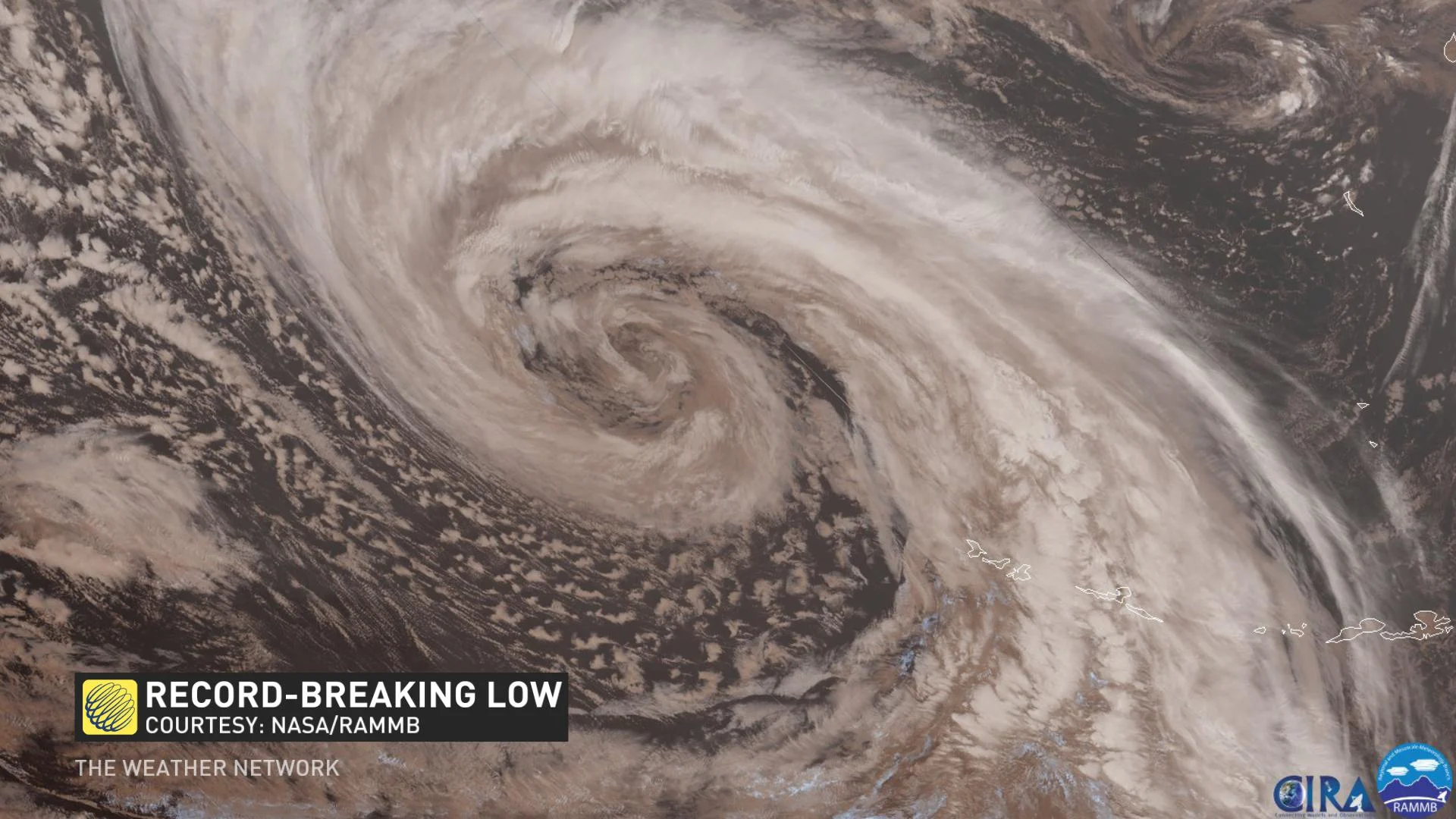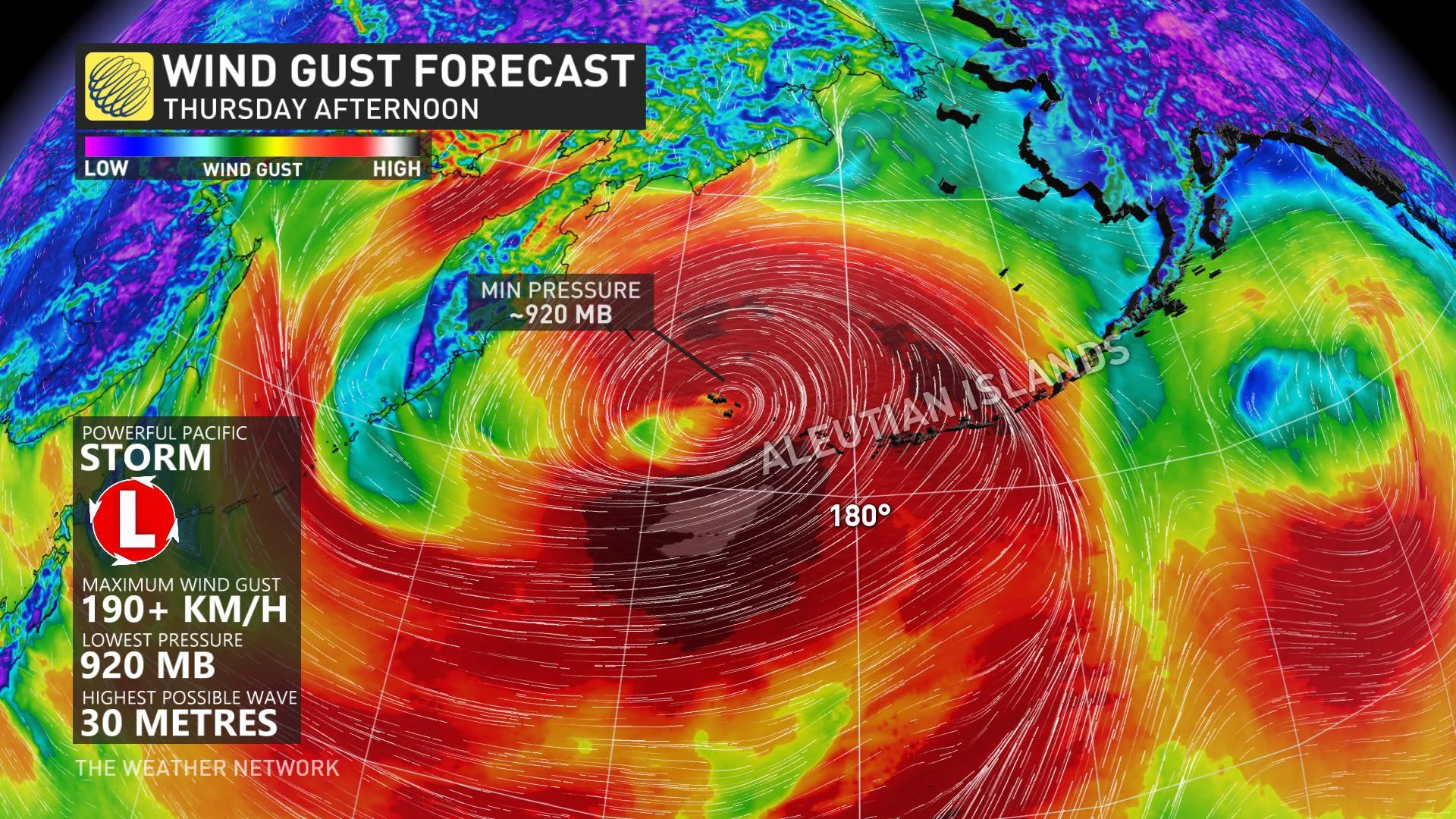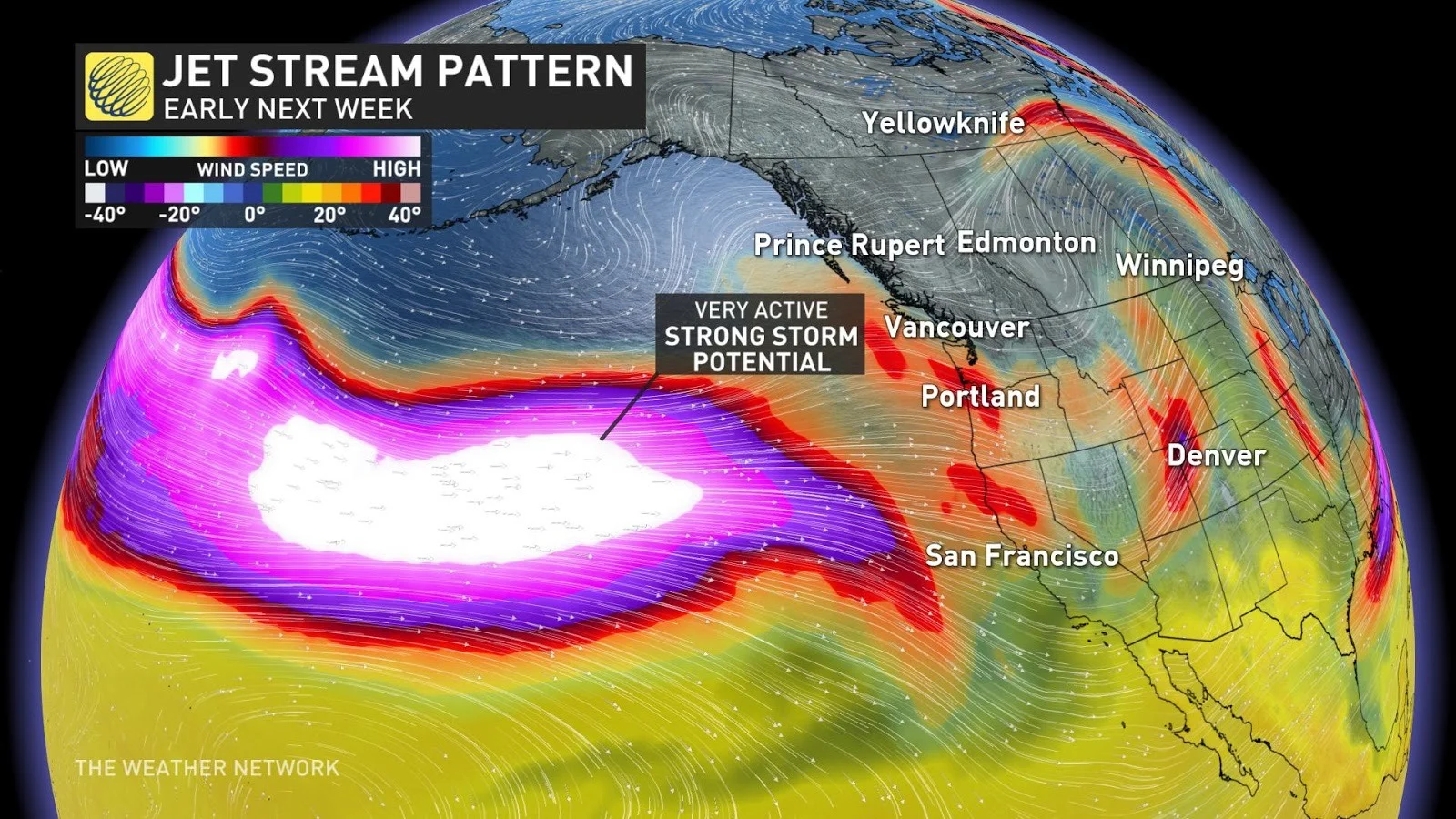
Strongest low in the world heading towards Alaska
This monster low is nearing record territory for the region, and is currently the strongest on Earth.
Editor’s note: This article is no longer being updated. Click here to read the recent updates on this powerful low pressure system.
It's quite the fitting ending for 2020: The strongest low in the world closing out the year and ushering in 2021.
On Wednesday, a monster storm was born across the western Pacific and caused record-breaking cold temperatures to stream east across Japan.
By Thursday, the low straddled the International Date Line as it reached peak intensity - meaning half the storm had already entered the next year, while the other half was currently stuck in 2020.
As it crossed the date line, the storm's pressure was around 928 millibars, not far off from the record of 924 millibars, with some strengthening still expected into Thursday evening.
What that will amount to is epic winds nearing 200 km/h on the southern side of the low Thursday, whipping up the waves to possible maximum heights close to 30 metres. The swell will propagate across the Pacific, and there is the possibility that parts of western Vancouver Island could see 6 to 8 metre waves.

For reference, only two Atlantic hurricanes in 2020 had lower pressure readings, Hurricane Eta and Iota, although this comparison is apples to oranges – hurricanes extract their power from warm sea surface temperatures, while the extreme temperature gradients in the northern latitudes fuel the storms tracking across the northern Pacific.
In the case of this low, Siberian air flowing across the western Pacific has interacted with a warmer, sub-tropical flow south of Japan, creating the necessary conditions to push the atmosphere to the limit.
DOWNSTREAM IMPACTS ON CANADA
All of that energy traversing the Pacific Ocean will create some weather chaos across Canada. B.C. ski resorts will be measuring snowfall, not in centimetres, but in metres in the days and weeks to come.

The strong jet stream that creates intense storm conditions for British Columbia will keep the rest of the continent void of any consistent Arctic air through mid-January.
